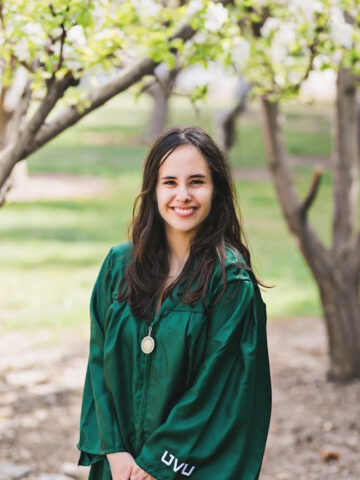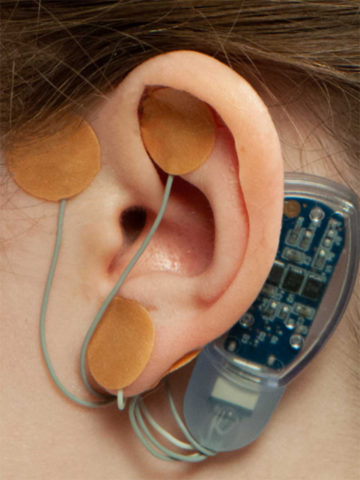A former CHOC patient* who just completed his undergraduate studies at a University of California school had a lightbulb moment.
Due to a spontaneous genetic mutation, he was born with a disorder that required him to undergo several corrective surgeries.
While growing up, he wished that in addition to his loving and supportive parents, he had other people with whom he could discuss the challenges his condition presented, including having to undergo multiple surgeries as well as taking medications and receiving other therapies.
About two years ago, his lightbulb moment was: What if I was that resource for patients and parents that I never had?
Since then, he’s been an integral part of CHOC’s growing Colorectal and Urogenital Program, volunteering some 10 hours a month as a resource for families whose kids have the same or similar condition as his – imperforate anus – which affects 1 in 4,000 newborns.
His desire to give back happened around the same time pediatric surgeon Dr. Donald Shaul, a leading expert in treating rare colorectal disorders, was recruited to CHOC in October 2021 to help take its Colorectal and Urogenital Program to the next level.
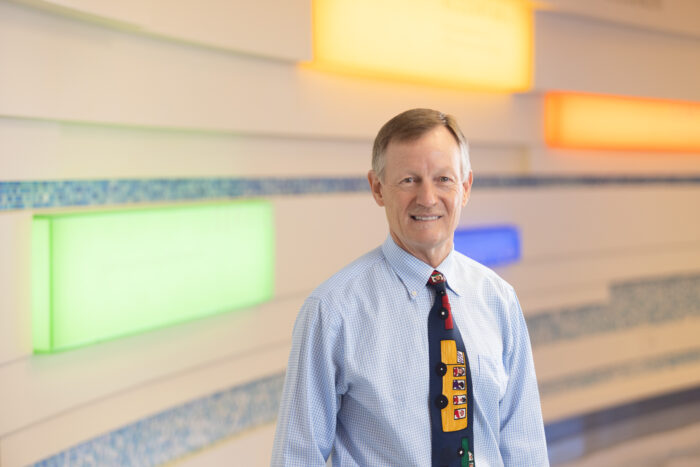
“It was an immediate home run to have a previous patient available to meet with families and tell them what he’s gone through,” says Dr. Shaul.
Over the years, the former patient has experienced complications but now lives a normal life.
“I have high expectations for myself and I try not to let this condition define me,” he says. “At no point did I or my parents want this condition to be a part of my identity.”
‘A personal stake’
CHOC’s Colorectal and Urogenital Program now is believed to be the only one in the country with a previous patient working as a volunteer and whose arrival created a new Patient and Family Peer Advocacy group.
So far, the former patient is the group’s first volunteer.
He has spoken with more than a dozen families over the past year who are participants in CHOC’s Colorectal and Urogenital Program. Dr. Shaul plans to launch a study to examine the effects of his involvement with patients and families.
“I have a personal stake in this – these families, I empathize with them,” the former patient says. “I know what they’re going through – especially the patients.
“I tell them, ‘You’re going to have a normal life. You’ll be able to go to school, go to the beach and swim – you’re going to have a lot of friends. You’re going to succeed. This condition is not going to define you.
“And this message, to me, is very empowering. It’s something I wish I had growing up, so I want to make sure these patients have access to such a service.”
Meeting a previous patient who no longer has any health issues gives patients and their families hope, Dr. Shaul adds.
More advanced procedures
As a young teenager, the former patient, who grew up in Southern California, had to travel to the Midwest for one of his surgeries.
Now, with Dr. Shaul, co-director of the colorectal program with pediatric gastroenterologist Dr. Ashish Chogle, that’s changed.
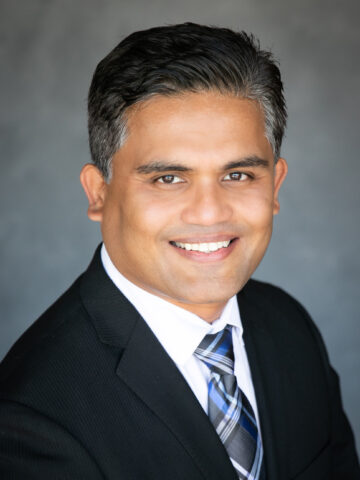
“If we had this patient here today, he wouldn’t have to go to another pediatric hospital for treatment since CHOC now is able to provide more advanced colorectal procedures than it had the capability of offering before,” Dr. Shaul says.
The program, which includes physicians and surgeons from multiple disciplines, has hired another pediatric surgeon, Dr. Hira Ahmad, who spent three years as a colorectal fellow at Nationwide Children’s Hospital and recently completed her pediatric surgery training in Seattle.
A rare opportunity
CHOC Trauma Medical Director Dr. David Gibbs, who operated on the former patient when he was 2 days old, helped recruit Dr. Shaul to CHOC.
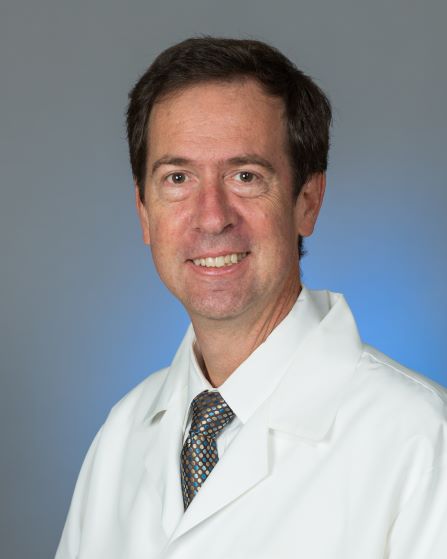
“The opportunity is pretty rare to do something like this,” Dr. Shaul says of building up CHOC’s Colorectal and Urogenital Program. “I also wanted an opportunity to mentor and teach young surgeons.”
Children with colorectal disorders often require the care of several specialists.
CHOC’s Colorectal and Urogenital Program brings together the expertise of pediatric gastroenterologists, pediatric surgeons, urologists, and skin, wound and ostomy nurses to work together to develop short- and long-term plans, including surgical interventions and follow-up care.
Dr. Gibbs, also the interim co-director of the Fetal Center of Southern California, has stayed in touch with the former patient over the years.
“From the time he was a baby, I had a feeling that this individual was destined to do great things, and I told his worried mom that when I first met the family in 2001,” Dr. Gibbs recalls.
“Since then, he has had years of experience as a patient and a volunteer participant in health care,” he adds. “He is now putting his perspective, compassion, and motivation to work helping other patients with his condition and is himself pursuing a career in medicine.
“He’s an inspiration to his surgical team and to our colorectal families.”
*This individual has asked to remain anonymous.
Learn more the CHOC Colorectal and Urogenital Center
The CHOC Colorectal and Urogenital Center specializes in providing expert diagnosis and second opinions for colorectal disorders, as well as developing personalized treatment plans using advanced diagnostics and the latest research-based treatment options

